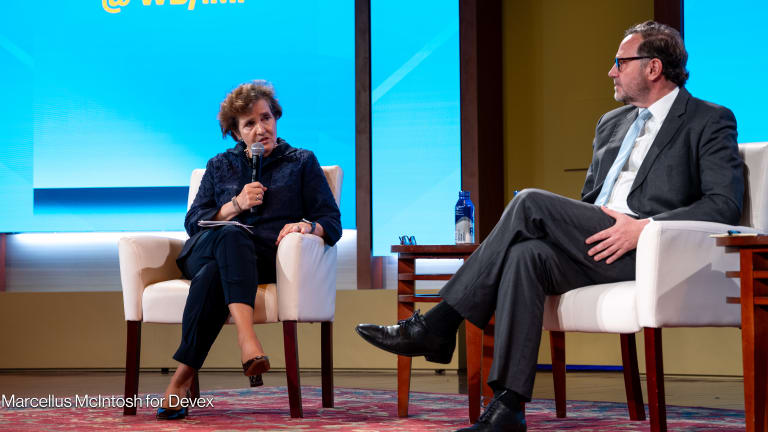The Millennium Challenge Corp. seeks to promote economic growth by entering into compacts with governments in the developing world. But what role does MCC play on the ground once such an agreement takes effect? Alicia Phillips Mandaville, MCC's associate director for development policy, explains.
To be eligible for a compact, countries enter into a four-step eligibility process. The first step determines eligible countries by examining their income and poverty levels, as well as U.S. or international sanctions they may be subjected to.
Next, MCC publishes a list of the criteria used to determine a country's eligibility for a compact. Countries must score well on 17 indicators evaluated by organizations such as the Freedom House and World Bank Institute. The indicators range from political freedom to a country's ability to foster economic growth.
This story is forDevex Promembers
Unlock this story now with a 15-day free trial of Devex Pro.
With a Devex Pro subscription you'll get access to deeper analysis and exclusive insights from our reporters and analysts.
Start my free trialRequest a group subscription







